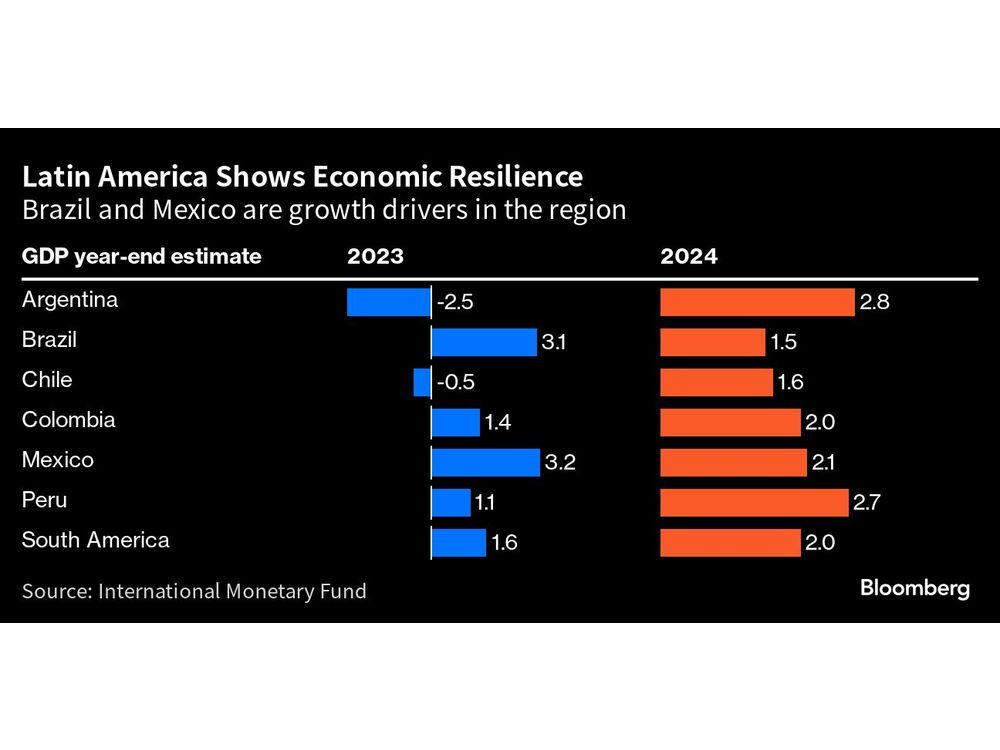
Article content
(Bloomberg) — Argentina has no time to make gradual economic adjustments as it faces soaring consumer prices and its sixth recession in a decade, according to a top International Monetary Fund official.
With just a week to go before a key presidential election, annual inflation has spiked to 138%. The central bank was forced from the sidelines and raised its policy interest rate by 15 percentage points to 133% in response.
Article content
Even amid the increasing threat of hyperinflation, Argentina has shown little willingness for anything more than incremental reform. But “the situation demands much faster actions,” Rodrigo Valdes, the fund’s western hemisphere director, said Friday in an interview.
Frontrunner Javier Milei, a Libertarian economist, is vowing to scrap both Argentina’s peso and its central bank. Valdes warned that his plan to dollarize the economy will require tough reforms, like a flexible labor market, to ensure stability.
“We will try to discuss the conditions needed in the long run for a regime to work well, because you lose foreign exchange as an adjuster,” the IMF official said in Morocco during the annual meetings of the fund and the World Bank Group. “During the transition you need to stabilize reserves — many things need to be worked out.”
Read more: IMF’s $43 Billion Argentina Problem Is About to Get Worse
Elsewhere in Latin America, however, central banks have the “luxury” of continuing to ease monetary policy even amid increasing global risks and the impact of higher Treasury yields, Valdes said.
Article content
The region’s “timely” hiking cycle makes it “the best prepared in the world” to keep lowering interest rates, even in the face of a potential jump in energy prices amid the Israel-Hamas war, he added.
Major regional economies like Brazil, Chile and Peru have been lowering rates over the past few months, as price pressures eased following aggressive tightening cycles in the wake of the Covid pandemic.
Valdes flagged outperformance by Brazil and Mexico as the reason the IMF’s growth estimates for the region were below actual results over the past few years. “Forecasting is always difficult,” he said. “Both have tight monetary policy and the reforms made in the last few years started to accumulate and produce results.”
The fund sees growth averaging 2.3% across Latin America this year. Excluding Argentina and Venezuela, it forecasts regional inflation will slow to 5% in 2023 before easing to 3.6% next year.
Central bankers across the region have warned about the impact on price pressures from the El Niño weather phenomenon. To the fund, the climate phenomenon could negatively impact activity with floods in Ecuador and Peru, droughts in Colombia, Central America and southern Peru. Argentina, Paraguay and Uruguay, however, might benefit from a an increase in rains after a severe water crisis.
“Despite a generally timely withdrawal of the pandemic fiscal support, public debt remains high and is projected to remain above that of their peers by 2028,” the fund warned in its regional report. Fiscal consolidation and structural economic reforms that boost growth are the main challenges ahead.
Valdes also said an IMF agreement with El Salvador, which has been negotiating with the fund for years, is getting closer to the finish line. Acknowledging talks have dragged on, he said they are now working toward a “substantial” program. “We will continue to engage with them in the next weeks”
Share this article in your social network